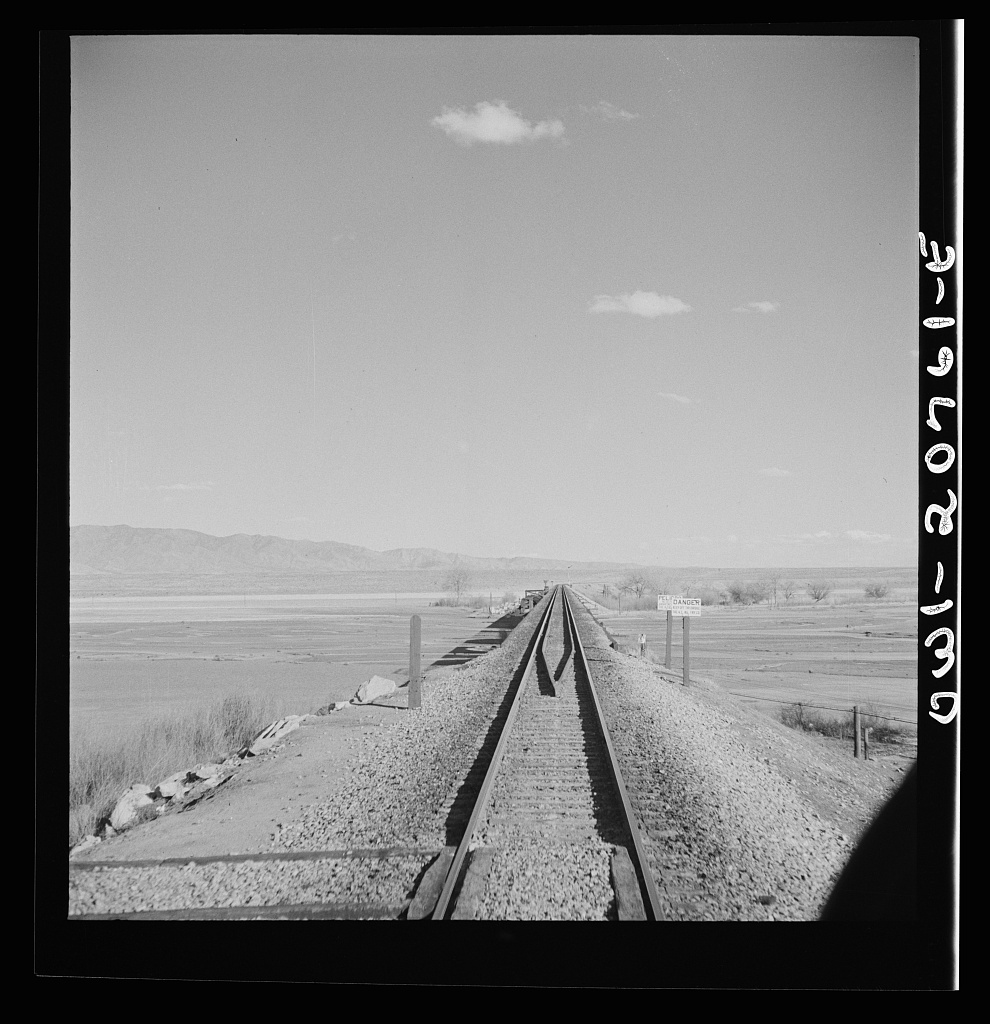
Going across the Rio Grande River Valley on the Atchison, Topeka and Santa Fe Railroad between Vaughn and Belen, New Mexico. Jack Delano, 1943, Office of War Information
One of the first books Bob Berrens suggested I read when we began working together was Voltaire’s Candide. This has come in handy.
Candide is a bit of a romp, a picaresque in which our hero has all kinds of horrifying misadventures before settling down to tend his garden.
Il faut cultiver notre jardin.
Our forthcoming book Ribbons of Green: The Rio Grande and the Making of a Modern American City, is part of the University of New Mexico’s Press’s “New Century Gardens” series, a conceptual framework that sent us down the Voltaire translation rabbit hole.
The evolution of Albuquerque’s relationship with the Rio Grande involved a dramatic hydrologic alteration of the Rio Grande through the valley in which we live, the creation of an integrated system of flood control, drainage, and irrigation that, in an instant, changed the river and the communities relationship with it.
The common, and famous, translation of Voltaire’s line is that “We must cultivate our garden.” In our modern usage, “garden” carries a connotation of a bit of land around the house where we grow some flowers and vegetables and maybe a fruit tree. But in recent years translators have reached back to the French of Voltaire’s time to suggest a broader version, a tended landscape – “We need to work our fields,” or “We must work our land.”
Here is translator Burton Raffel:
Note that in Voltaire’s day the French word “jardin” meant “fields” or a place where one cultivated either medicinal plants or assorted vegetation from around the world. Indeed, until the nineteenth century the English word “garden” had the same meaning; the adjectives “flower” or “private” were still required to indicate the newer and now prevalent meaning. At the end of Candide the word Voltaire uses, jardin, has been regularly mistranslated (for our time) as “garden.”
The word “garden” played a lively role in the development of Albuquerque’s integrated system of flood control, drainage, and irrigation, a rhetoric at times bordering on the Edenic.
It was a fun bit of scaffolding from which to hang a book.

Candide ! Indeed ! The point in Candide is that through all of her troubles her companion, the philosopher Pangloss, always believed that with every tragedy and misadventure, the world they lived in was the best of all possible worlds. This is not so today when every day is the worst we could hope for: war, genocides, starvation, internicine and tribal conflict, political division, threats to democracy, border conflicts and mass human migration, chemical warfare, threats of nuclear catastrophe, global warming, societal breakdown vis a vis mass shootings, rising sea levels, dying coral reefs and dying ecosystems on land and sea, mass starvation.. What? Me a pessimists? to paraphrase Howard J. Neuman. The indicia or symptoms have been all about us for generation.